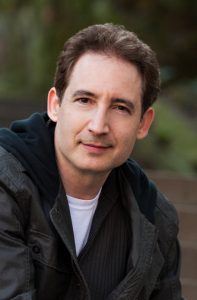
For the majority of the population, theoretical physics is just that — theoretical. Maybe it was studied briefly in a high school physics class, or maybe dabbled in during college, but oftentimes theoretical physics remains, for most people, a mystery.
Brian Greene is not one of these people. In fact, Greene is one of the world’s leading theoretical physicists, boasting degrees from Harvard University and Oxford University and currently serving as the director of Columbia University’s Center for Theoretical Physics, where he is also a professor of physics and mathematics.
A Rhodes Scholar and best-selling author, Greene will open the Chautauqua Lecture Series week on “The Science of Us” with his lecture, “Mind, Matter and Our Search for Meaning in an Evolving Universe” at 10:45 a.m. EDT on Monday, Aug. 10, on the CHQ Assembly Virtual Platform.
Theoretical physics is a branch of physics which explains, rationalizes and predicts natural phenomena through the study of mathematical models and abstractions of physical objects and systems.
Simplified, theoretical physics is an attempt to understand the world by creating models of reality, in contrast to experimental physics which involves actual interaction with whatever is being studied, from pushing a sphere down a hill to measuring the speed of light particles.
Greene is well known for the books he has authored: The Elegant Universe, The Fabric of the Cosmos, The Hidden Reality and, his most recent publication, Until the End of Time: Mind, Matter, and Our Search for Meaning in an Evolving Universe. Combined, these books have sold over 2 million copies and have been translated into 40 languages, and have spent a collective 68 weeks on the New York Times bestsellers list.
In addition to his work as an author and professor, Greene is also the co-founder of The World Science Festival, which, according to its website, seeks to “cultivate a general public informed by science, inspired by its wonder, convinced of its value, and prepared to engage with its implications for the future.”
The theme for Week Seven, “The Science of Us,” centers on discussion of the social and historical impact of 21st-century scientific developments, and the implications that new understandings of heritage and ethnicity have on community development and socioeconomic models moving forward. Greene’s lecture will touch on these topics, as well as giving an overview of his new work, Until the End of Time: Mind, Matter, and Our Search for Meaning in an Evolving Universe, which explores deep time and humanity’s search for purpose.
Vice President and Emily and Richard Smucker Chair for Education Matt Ewalt said that Greene will offer a unique perspective on the week’s topic.
“In a week in which we consider how 21st-century science is shaping how we think of ‘us’ as a species, Brian Greene begins at the very beginning and looks to the end of time as we know it, examining how we came to be, our role in the vast universe and humanity’s continued search for meaning,” Ewalt said. 
Ewalt said he was excited to collaborate with Greene’s production team at the World Science Festival, who have produced a 50-minute program with “exceptional graphics and animations” to accompany Greene’s lecture.
This program is made possible by the Week Seven “Program Sponsor” Allegheny Health Network and the Barbara R. Foorman Science Literacy Endowment.




